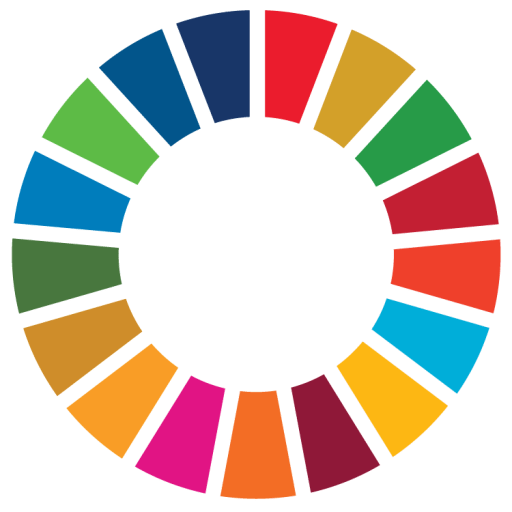Rehema White looks forward to the international stage for learning for sustainability in 2016
Rehema White, (lecturer at St. Andrews University) inaugurated the Sustainable Development Programme at the University of St. Andrews. She sits on the local Transition steering group and is a Director of the Secret Garden Outdoor Nursery in Fife. Rehema’s research interests are around knowledge and sustainable development (including ESD, outdoor learning); sustainability governance (across communities, local authorities and South-North links); and craft/art (including creative/embodied learning). Rehema currently sits on the LfS Scotland steering group and held the post of Chair from 2013 – 2015.
Back in November, we asked Rehema to write the first blog entry of 2016.
It’s a time of hope as the international community tries to come together and tackle the world’s sustainability challenges in different ways. Learning for sustainability sits at the intersection of several global agendas. As I write, the COP21 climate change negotiations are ongoing in Paris. We may be cautiously optimistic that the outcome will be better than that in Copenhagen. The consequence will influence the direction of Sustainable Development Goal 13 (climate change). The new 17 Sustainable Development Goals (SDGs) replace the Millennium Development Goals and will take us up to 2030. At the same time, the Global Action Plan from the UN Decade of Education for Sustainable Development is slowly taking shape, but will be informed by and influence the SDG for education. I recently attended Scotland’s Post-15 group on behalf of LfS Scotland and have been involved with LfS Scotland’s discussions and workshops on these global initiatives.
So what does this mean for learning for sustainability here in Scotland? Firstly, it consolidates the holistic framing of sustainable development. The 17 diverse SDGs remain, allowing us to demonstrate the scope of our intention. The next time somebody asks you, “What does sustainability include?” you can direct them to the nice diagram below (Figure 1). Some parties are seeking reframing and re-naming of the goals as Global Goals, but so far the term ‘Sustainable Development Goals’ remains. We think it is important to retain the name Sustainable Development to emphasise the origin and framing of this work.
Secondly, of course those of us in the field of learning or sustainability know that how we learn (our pedagogy) is as important as what we learn (the curriculum – perhaps similar to the topics of the SDGs overall). Likewise, the UN Secretary General produced a broad framework for how we should pursue the SDGs. This ‘5Ps framework’ (figure 2) includes the need to consider together people, planet, prosperity, peace and partnership. You will probably recognise elements of this as society, environment and economy interlinked in a new way. Partnership is perhaps a more equal way forward than the sustainability norm of ‘participation’, demanding responsibility from all yet requiring resource to function. ‘Peace’ is an inspired addition, recognising that conflict impedes our way towards sustainability and highlighting the need to tackle corruption and undemocratic processes.
Thirdly, the SDGs differ from the MDGs in that the latter focused mainly on international development, and were at times critiqued for a slightly colonial tendency for the global North to dictate to the global South. No longer – the SDGs require a domestic focus as well as international partnerships and support. This means that networks and organisations with a less than international outlook can engage more than previously. We can all work in partnership towards individual or clustered SDGs.
Fourthly, the contribution of civil society is essential. It is still not clear how much of the pursuit of SDGs will be governed from UK rather than Scottish Government. Scotland is well placed to incorporate the SDGs into ongoing activities through the National Performance Framework that is already in place, and the First Minister was one of the first leaders to come out strongly in favour of the SDGs. But each of us and each of our organisations, our institutions and our communities has a role to play in shaping and following the strategy that will emerge.
Fifthly, it is likely that not all SDGs will be equal. The statutory basis to tackle climate change in this country already exists, meaning a focus on this area may continue to drive progress in others. We have already seen this, for example, as the Climate Challenge Fund stimulated activity across community groups. If a global consensus emerges on climate change, this priority will be enhanced at an international level. Some countries will prefer to focus more on particular SDGs, and active partnerships may make greater progress on some than others.
Finally, in Scotland we have an excellent network organisation in Learning for Sustainability Scotland that can catalyse interaction across the network of education partners within Scotland. We have already held a workshop to examine how the SDGs align with the end of the UN DESD and you can read the event report by clicking here. Thankfully GAP will shape and be shaped by the emerging SDGs, so we are not running parallel or even conflicting lines of activity. Education underpins all of the SDGs, so we expect to contribute especially but not exclusively to the education SDG.
At the Post 15 group we discussed how to move forward and you can expect to be asked for consultation, engagement and to take an active part. This is an historic moment, when global agendas align. You can help decide which path we take for the next 15 years. You can determine with whom we work. You can create the vision of the world we want to inhabit. Of course, some of us have seen global promises come and go, and the magnitude of the challenges should not be underestimated. But this does feel like an opportunity that just might enable us to move at least one step closer to our own goals.


